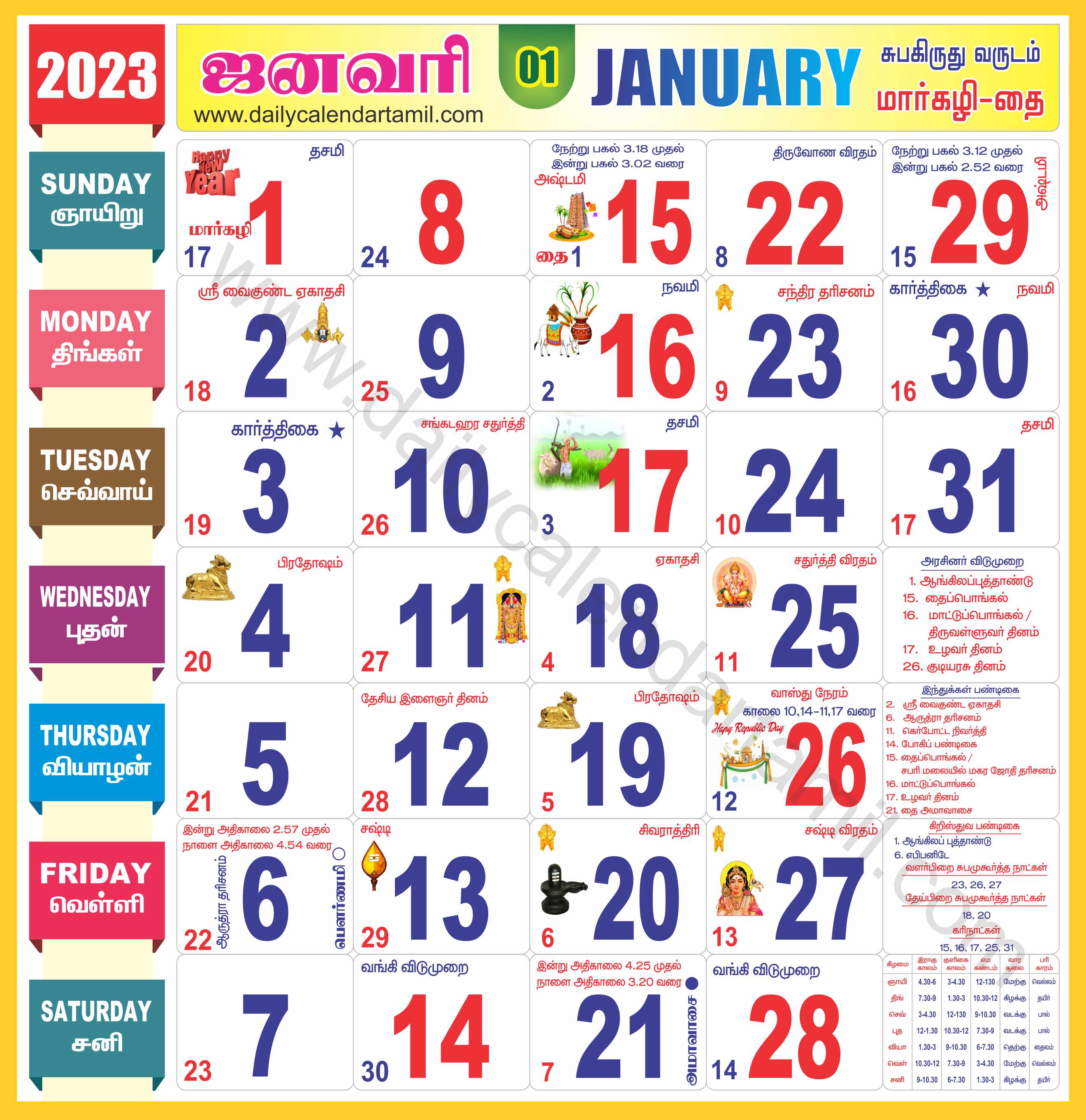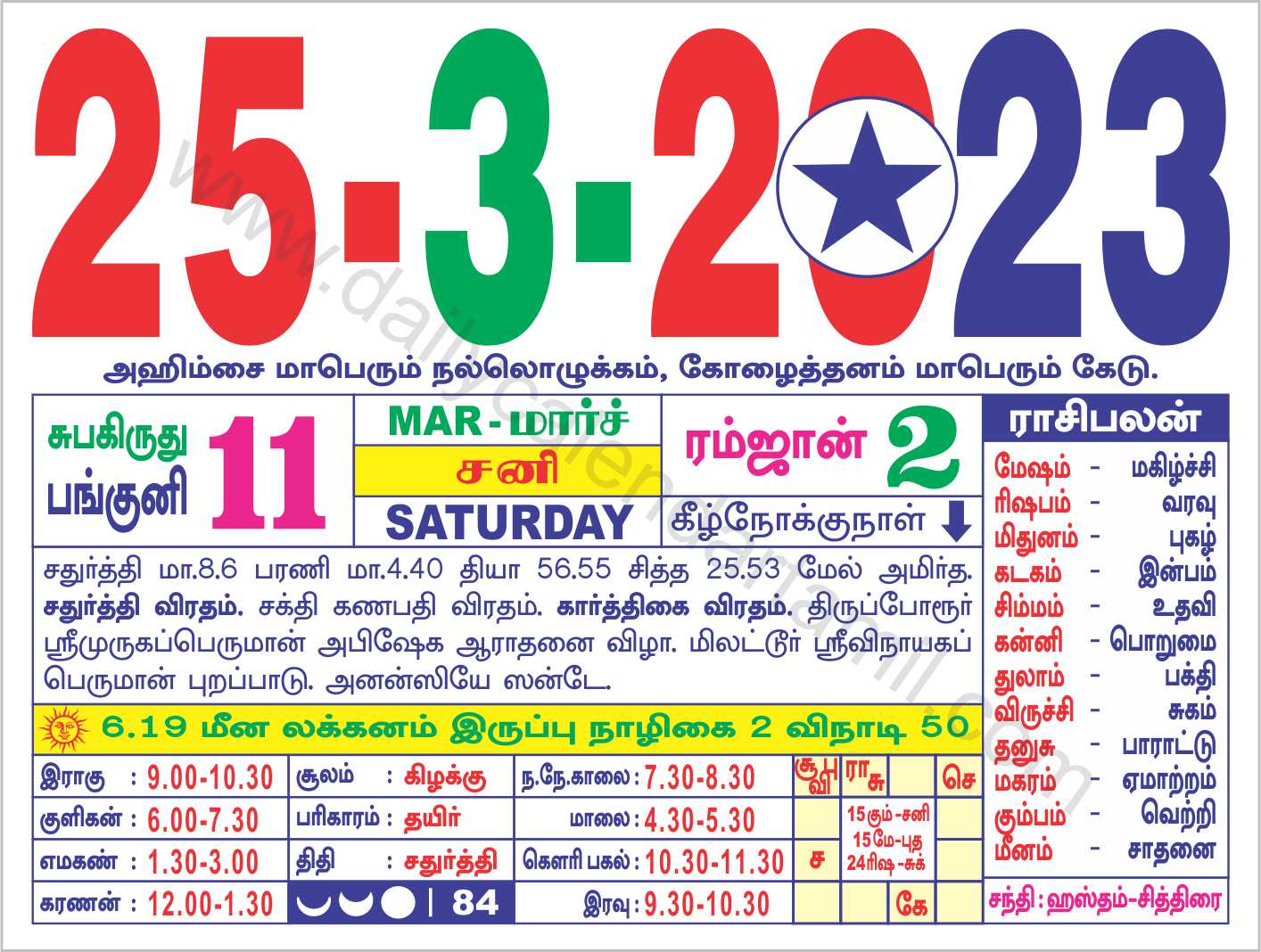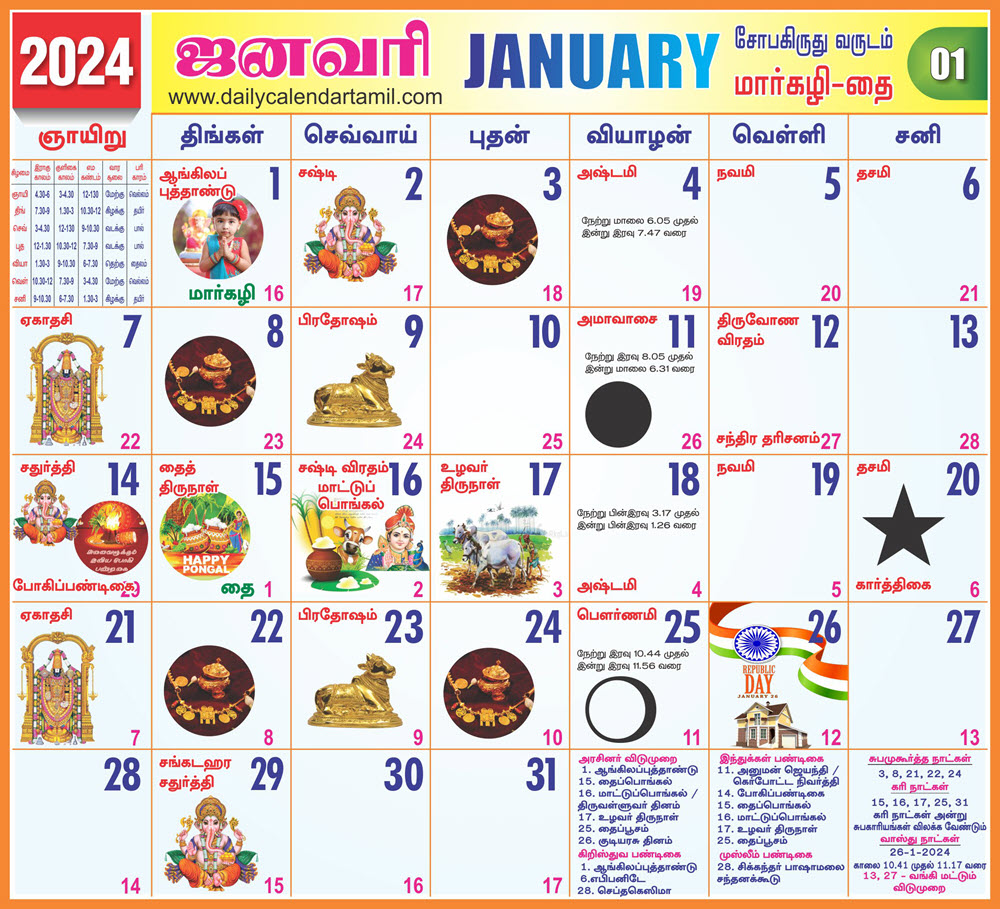![]()
Introduction
The tamil calendar for january 2026 represents a significant subject within its field, encompassing a range of practices, traditions, and applications that shape daily life and broader cultural landscapes, particularly within Tamil communities worldwide. Understanding the tamil calendar for january 2026 provides clarity about its background, its present relevance, and the way it continues to influence various aspects of society, from religious observances and personal milestones to agricultural cycles and community gatherings. This ancient system of timekeeping, deeply rooted in astronomical observations and cultural heritage, offers more than just a chronological sequence; it provides a framework for understanding auspicious timings, celebrating festivals, and maintaining a profound connection to ancestral practices. Its intricate structure, combining solar and lunar elements, ensures a holistic approach to time, reflecting a worldview where cosmic rhythms are intrinsically linked to human experience.
Definition and Origin of the Tamil Calendar
The Tamil calendar is a lunisolar calendar used by Tamil people globally. It is based on the sidereal year, meaning it tracks the sun’s apparent movement against the backdrop of fixed stars, rather than the tropical year used by the Gregorian calendar. The origins of this calendar system are ancient, with roots in early Dravidian astronomy and Vedic traditions, dating back thousands of years. Its development was influenced by sophisticated astronomical calculations, allowing for precise determination of planetary positions, star constellations (nakshatras), and lunar phases (tithis).
The calendar year begins in mid-April with the month of Chithirai, marking the vernal equinox. Each month is defined by the sun’s transit through a specific zodiac sign (Rasi). The months are typically 29 to 32 days long, aligning with the solar cycle. However, lunar phases are also crucial, especially for determining festival dates. The calendar incorporates a 60-year cycle, known as Prabhavaadi, with each year having a unique name and associated characteristics, believed to influence events within that year. This intricate system allows for the calculation of auspicious times (Nalla Neram), inauspicious periods (Rahu Kalam, Yamagandam), and the precise timing of religious rituals and festivals. The principles embedded within the Tamil calendar reflect a deep understanding of celestial mechanics and a desire to live in harmony with natural rhythms.
Importance of the Tamil Calendar Today
The importance of the Tamil calendar today extends far beyond mere timekeeping; it serves as a cultural anchor and a guide for daily life within Tamil communities. Despite the widespread use of the Gregorian calendar for official and administrative purposes, the traditional calendar remains indispensable for a multitude of reasons. It dictates the timing of all major religious festivals, ensuring that spiritual observances are conducted in accordance with ancient customs. For instance, significant festivals like Pongal, Thai Poosam, and Tamil New Year are all determined by its calculations.
Furthermore, the calendar plays a crucial role in personal life events. Auspicious dates and times are consulted for weddings, housewarming ceremonies, starting new ventures, performing pujas, and even for mundane activities like travel or haircutting. This practice underscores a belief in aligning human actions with cosmic energies to ensure success and well-being. The calendar also fosters a sense of community and shared identity, as collective celebrations and observances strengthen social bonds and cultural continuity. It provides a framework for understanding and passing down traditional knowledge, connecting younger generations to their heritage. In essence, the Tamil calendar is not just a historical artifact but a living tradition that continues to shape the spiritual, social, and personal fabric of Tamil society.
Benefits of the Tamil Calendar
The benefits derived from adhering to the Tamil calendar are multifaceted, impacting spiritual, social, and personal dimensions of life. One primary benefit is the guidance it offers for spiritual practices. By providing precise dates for festivals, fasts, and auspicious periods, it enables individuals to observe religious duties with accuracy and devotion, fostering a deeper connection to their faith. This structured approach to spirituality helps maintain discipline and encourages communal participation in religious events.
Another significant benefit is its role in planning life events. The concept of "Nalla Neram" (auspicious time) and "Muhurtham" (propitious moment) allows families to choose the most favorable timings for major milestones such as weddings, naming ceremonies, housewarmings, and business inaugurations. This practice is believed to enhance the success and longevity of these endeavors, providing peace of mind and a sense of cosmic alignment.
The calendar also serves as a powerful tool for fostering community and cultural identity. Shared observance of festivals and traditions strengthens social bonds, promotes intergenerational learning, and reinforces a collective sense of belonging. It acts as a repository of cultural knowledge, ensuring that ancient customs, stories, and values are preserved and transmitted across generations.
Moreover, the Tamil calendar offers a structured approach to time, encouraging a mindful engagement with daily life. By highlighting specific days for certain activities or reflections, it promotes a cyclical understanding of time rather than a purely linear one, emphasizing renewal and natural rhythms. This holistic perspective can contribute to a more balanced and purposeful existence, connecting individuals to their heritage and the broader cosmos.
Applications of the Tamil Calendar
The applications of the Tamil calendar are extensive and permeate various aspects of daily life, particularly evident in January 2026.
One of its most prominent applications is in determining festival dates. For instance, the significant harvest festival of Pongal, a multi-day celebration, typically falls in mid-January. In January 2026, Pongal will be observed around the 14th or 15th, marking the start of the Tamil month of Thai. This period is highly auspicious, symbolizing gratitude for the harvest and the sun god. Similarly, other religious observances and fasts during January 2026 will be precisely scheduled according to the calendar’s calculations, guiding devotees in their spiritual practices.
The calendar is also crucial for identifying auspicious times (Nalla Neram) and avoiding inauspicious periods (Rahu Kalam, Yamagandam) for daily activities. Individuals consult the calendar to determine the best time to start a journey, sign a contract, conduct a business meeting, or even engage in personal tasks. For example, a family planning a significant event in January 2026 would meticulously check the calendar for the most favorable "Muhurtham" to ensure success and good fortune.
In astrology and horoscopy, the Tamil calendar forms the fundamental basis. Astrologers use its precise calculations of planetary positions, nakshatras, and tithis to cast horoscopes, provide predictions, and offer guidance on life’s trajectory. The specific alignment of celestial bodies during January 2026, as interpreted through the calendar, would be used to advise individuals on various aspects of their lives.
Furthermore, the calendar has historical and continuing applications in agricultural planning. While modern farming relies on scientific data, traditional agricultural practices in Tamil Nadu historically used the calendar to determine optimal sowing and harvesting times, aligning with seasonal changes and auspicious periods to ensure bountiful yields. Even today, some rural communities may still refer to these traditional timings. The practical utility of the calendar in orchestrating both spiritual and worldly affairs underscores its deep integration into Tamil culture.
Challenges and Future of the Tamil Calendar
Despite its enduring importance, the Tamil calendar faces several challenges in the contemporary world, while also possessing significant potential for its future. One primary challenge lies in integration with the globally dominant Gregorian calendar. For many, navigating between two calendar systems for official and personal matters can be complex. This dual usage sometimes leads to a disconnect, particularly among younger generations who are more exposed to the Gregorian system through education and professional life.
Another challenge involves maintaining traditional knowledge in an increasingly globalized and digitalized society. The intricate calculations and nuanced interpretations of the calendar often rely on specialized knowledge passed down through generations. There is a risk that this expertise could diminish if not actively preserved and promoted. The fast-paced nature of modern life also means that fewer individuals may have the time or inclination to meticulously follow all the traditional observances.
However, the future of the Tamil calendar appears robust, largely due to a renewed interest in cultural heritage and the advent of digital tools. Digitalization offers a significant opportunity for the calendar’s preservation and wider accessibility. Numerous mobile applications and online platforms now provide daily Tamil calendar information, including festival dates, auspicious times, and astrological insights, making it easier for people to access and utilize its principles. This digital transformation helps bridge the gap between tradition and modernity, ensuring its relevance for contemporary users.
There is also a growing appreciation for cultural identity among the Tamil diaspora, leading to increased efforts to understand and practice traditional customs. This resurgence of interest helps to counteract the challenges of globalization, ensuring that the calendar remains a vibrant part of cultural life. Educational initiatives and community programs focused on explaining the calendar’s significance and mechanics can further secure its future, ensuring it continues to guide and enrich the lives of Tamil people for generations to come.
FAQs about the Tamil Calendar
Q1: What is the Tamil calendar?
The Tamil calendar is a lunisolar calendar primarily used by Tamil people, based on the sidereal year. It tracks the sun’s movement through the zodiac and incorporates lunar phases to determine festival dates and auspicious timings. Its year begins in mid-April with the month of Chithirai.
Q2: Why is the Tamil calendar important?
It is important because it serves as a cultural and religious guide for Tamil communities. It dictates the timing of all major festivals, helps determine auspicious dates for life events (weddings, housewarmings), and connects individuals to their heritage and spiritual practices, fostering a strong sense of identity and community.
Q3: What are the main benefits of the Tamil calendar?
The main benefits include providing guidance for spiritual observances, enabling the planning of life events during auspicious periods, fostering community bonds and cultural identity, and offering a structured, mindful approach to time that connects individuals to natural and cosmic rhythms.
Q4: How can the Tamil calendar be applied in daily life?
In daily life, the Tamil calendar is applied to identify festival dates (like Pongal in January 2026), determine auspicious times (Nalla Neram) for starting new ventures or important activities, avoid inauspicious periods (Rahu Kalam), and for astrological consultations to guide personal decisions and understanding.
Q5: What challenges are associated with the Tamil calendar?
Challenges include the complexity of integrating it with the Gregorian calendar for daily life, the potential for traditional knowledge to diminish in a globalized world, and the need to adapt its practices to modern lifestyles. However, digitalization and a renewed interest in cultural heritage are helping to address these challenges.
Tips for the Tamil Calendar
To fully appreciate and utilize the Tamil calendar, certain approaches can be beneficial:
Understand the fundamentals. Familiarize oneself with the basic components of the calendar, including the names of the months, the concept of nakshatras (star constellations), tithis (lunar days), and the significance of auspicious and inauspicious periods like Nalla Neram and Rahu Kalam. Resources like online calendars, traditional almanacs (Panchangam), and cultural guides can be invaluable.
Focus on practical use. Instead of trying to memorize every detail, concentrate on how the calendar applies to daily life. This could involve checking for festival dates, identifying auspicious times for personal or professional events, or understanding the significance of specific days for religious observances. Regular consultation helps integrate its principles naturally.
Stay updated on new trends or research. While the core principles of the Tamil calendar are ancient, its presentation and accessibility are evolving. Keep an eye on new digital tools, mobile applications, and online resources that make the calendar easier to use and understand. Some scholars also conduct research into its astronomical foundations, offering deeper insights.
Avoid common mistakes. One common mistake is misinterpreting auspicious timings or festival dates due to reliance on inaccurate sources. Always cross-reference information with reputable traditional almanacs or trusted cultural organizations. Another mistake is to view the calendar solely as a rigid set of rules, rather than a flexible guide for living in harmony with cosmic cycles.
Adopt a long-term approach. Understanding the Tamil calendar is a journey, not a destination. Its depth and complexity reveal themselves over time. By consistently engaging with its principles and observing its cycles, a deeper appreciation for its cultural, spiritual, and practical significance will develop, enriching one’s connection to Tamil heritage.
Conclusion about the Tamil Calendar
The continuing importance of the tamil calendar for january 2026, and indeed for all periods, cannot be overstated. It stands as a profound testament to ancient astronomical wisdom and a vibrant repository of cultural heritage. Its intricate system, guiding everything from major festivals like Pongal in January 2026 to the selection of auspicious moments for life’s milestones, reinforces its central role in the lives of Tamil people worldwide. This calendar system provides a unique lens through which to view time, connecting individuals to their spiritual roots, fostering strong community bonds, and preserving a rich tapestry of traditions. While challenges such as integration with modern life and the preservation of traditional knowledge exist, the benefits of the Tamil calendar – including its guidance for spiritual practices, its utility in planning significant events, and its role in reinforcing cultural identity – profoundly outweigh them. As digital tools continue to enhance its accessibility and a renewed appreciation for cultural heritage grows, the tamil calendar for january 2026 and beyond is assured of remaining a central element of progress and relevance, continuing to shape lives and foster a deep connection to a timeless legacy.


![]()




Leave a Reply